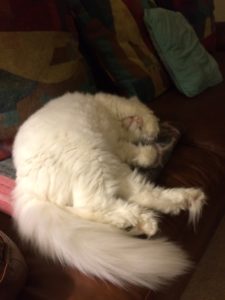Most writers strive for a unique writing voice. Voice refers to not what you write, but how you write it. Developing a unique style or voice takes practice and mastery of skills.
Writing Tip for Today: What are some valuable skills for developing writer’s voice?
Avoid Wordiness
To find one’s writing voice, many writers mistakenly fill their pages with way too many words. The old saw to “always use the simplest word possible” really does matter. Remember, unless you’re a lawyer or writing technical work, a writer’s main job is to keep readers engaged. If you require your readers to search for every sentence’s meaning couched in unnecessary words and phrases, readers may give up before they can discern that meaning.
Wordiness can often be found in writing that is seeking to explain these meanings. Remember the old rule to Resist the Urge to Explain or RUE? When we doubt our readers’ ability to understand what we write, we explain. If you write a scene, allow your characters to act out the point with dialogue, setting, concrete sensory details and action. Rely on the elements of scene writing to get your message across and lure readers to the next scene.

Resist the urge to Explain.
Wordiness also rears its head when we repeat information readers already know. If you’ve told readers that your character has entered a room, you can give hints about the room setting without reminding readers that the character walked into a room. A character can observe details and act without giving information that can be assumed.
Example:
For instance, a character who drives to work one morning probably does a thousand small steps: opening the door, walking to the car, etc. etc. Yet readers will understand just as well if you write, “She drove to work.”
Show Don’t Tell
Save your words for when you need to paint a word picture. If your narrative (telling) is kept brief, you’ll have more room to show. Readers seek mental movies to bring a story to life. By creating a scene with sensory details, dialogue and action, you allow readers to experience your meaning rather than be told what you mean.
Readers experience a scene if you keep the action moving. Practice learning the rhythm of action and information, never allowing the info (narrative) to overtake the action of a scene. Yes, we do need transitions, inner thoughts and other narrative bits, but practice writing even these through your character’s point of view. An angry person will view a Monday morning differently from someone who’s happy.
To make show, don’t tell succeed, be as specific as possible. Good writing reflects life as well as transforms it. Become a noticer—that is, a person who is perpetually noticing the little details of life. Write these details from your unique point of view and you’re on your way to developing a distinct writing voice.
Voice is Simplicity
In my opinion, many writers try too hard to develop a voice. If you add in all the tricks that you think will give you a voice, it may not be enough. Strive for simplicity first, then you can add back in flourishes that suit you.
Don’t reach for a voice. If the voice you think you need is not coming through for you, it’s probably not apparent to your readers, either. Your unique writing style can’t emerge if you try to write like an author you admire, although do please read and study successful authors’ work. Voice must come from who you are, not who you wish you were.
Finding your voice takes lots of practice. There isn’t a set of rules you can follow to obtain a voice—writing is part craft but also part art. The best way to develop your own style is to relax, write as well as you can and write a lot. As author Martin Amis said, “style is absolutely embedded in the way you perceive.”





